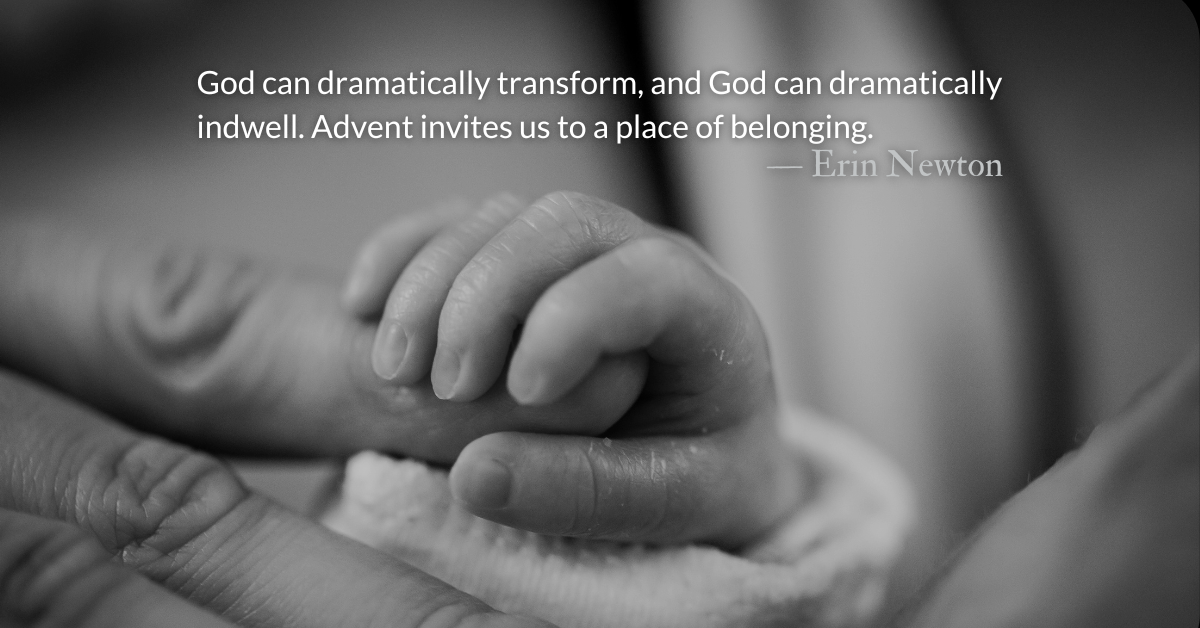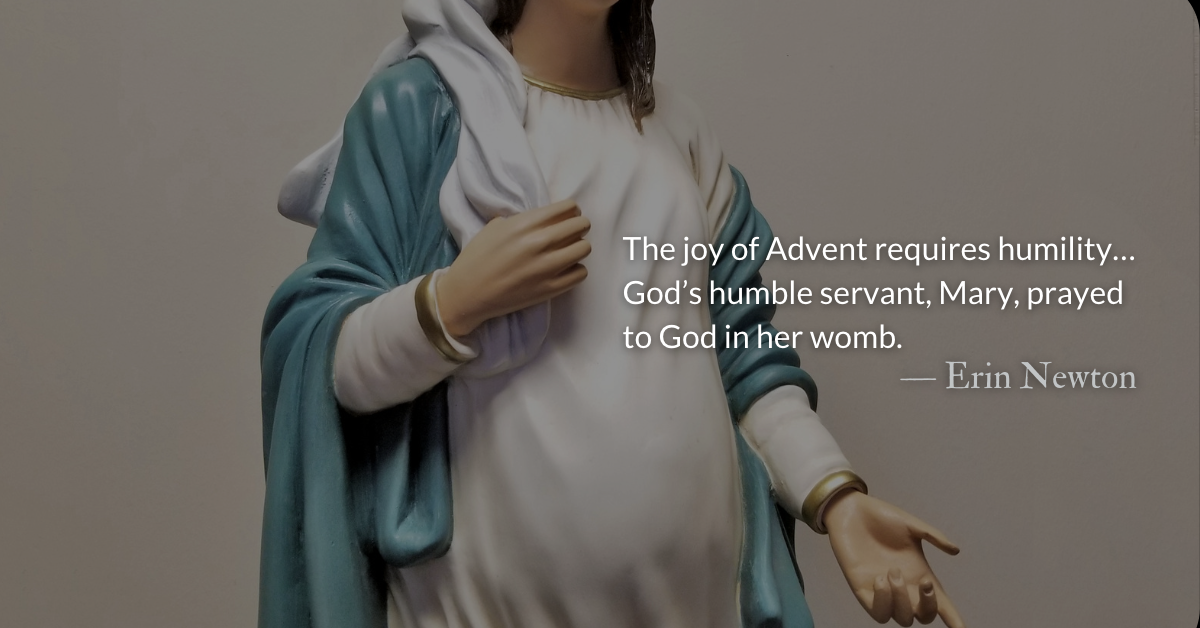Scripture Focus: Matthew 1.1, 16
1 This is the genealogy of Jesus the Messiah the son of David, the son of Abraham:
16 and Jacob the father of Joseph, the husband of Mary, and Mary was the mother of Jesus who is called the Messiah.
Luke 1.28
28 The angel went to her and said, “Greetings, you who are highly favored! The Lord is with you.”
Reflection: Mary’s Story — Love of Advent
By Erin Newton
These are the matriarchs of Jesus: Tamar, Rahab, Ruth, Bathsheba, and Mary. This is Mary’s story.
Unlike the other matriarchs of Jesus’s lineage, Mary is the focus of a multitude of hymns and prayers. She is the feature of paintings with token blue robes and a golden halo. As the mother of Jesus, she adorns nearly every nativity scene and features prominently in Advent messages.
The angel calls her “highly favored” and Elizabeth heralds her as “blessed among women.” Mary is well-known, famous to be precise. She is the foremost saint in the Catholic church. We know her story well.
Mary is the easiest character to place in the genealogy. Her story doesn’t center around abuse or widowhood. Yet we know she suffered for the task placed upon her. Her husband was not evil like Er, or sickly like Mahlon or Kilion, or murdered like Uriah. But Joseph was tempted to leave her child fatherless.
Her status as an unwed, pregnant young woman was met with skepticism and doubts. She was outcast in some ways—like Ruth, Rahab, Tamar, and Bathsheba. But Joseph stayed by her side, more like a Boaz than a David. No hand was laid upon her body, more loving than Judah or the men of Jericho.
Mary was a Jew. She did not have to struggle with a foreign culture. She could stay among family and provide safe haven for the Messiah inside.
Mary’s greatest asset to the world was her faithfulness. As men had chosen women before for their bodies; Mary was divinely chosen for her faith. Advent paints a rare and shockingly different picture of love.
Her story is unique, being the only divine conception that ever existed. But in some ways, she’s rather typical and expected. Her past is not powerfully redeemed. Her heritage was not amazingly rewritten.
She is well-known and respected. Her presence demands honor and dignity. Her burdens, disadvantages, and crises are seen as a badge of honor for the one who carries God in her womb.
She is the mother of Jesus. Mary, a woman of faith is chosen and honored as one of five women named in Jesus’s family.
In the love of Jesus belong the ordinarily faithful.
God can dramatically transform, and God can dramatically indwell. No matter our story, we belong within the love of Jesus. Advent invites us to a place of belonging.
Divine Hours Prayer: The Request for Presence
Lead me, O Lord, in your righteousness,… make your way straight before me. — Psalm 5.8
– From The Divine Hours: Prayers for Summertime by Phyllis Tickle.
Today’s Readings
2 Chronicles 17 (Listen 2:48)
Psalms 119.121-144 (Listen 15:14)
This Weekend’s Readings
2 Chronicles 18 (Listen 5:51) Psalms 119.145-176 (Listen 15:14)
2 Chronicles 19-20 (Listen 8:09) Psalms 120-122 (Listen 2:12)
Read more about Pause To Read
On Pause to Read, a podcast by The Park Forum, we read a devotional from the past year and encourage listeners to pause to read the scripture before continuing to listen to the devotional.
Read more about Supporting Our Work
We could not continue, much less expand our work, without our donors. Please consider joining them to support ad-free biblical devotional content to readers and listeners across the world.











